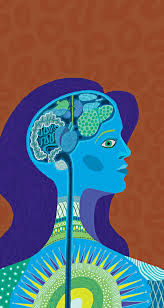Alcohol is a widely consumed substance across the world, with many people enjoying its effects in moderation. However, excessive alcohol consumption can have serious negative consequences on both physical and mental health.
One of the most immediate effects of alcohol is impaired judgment and coordination. This can lead to accidents, risky behavior, and even death. Additionally, alcohol can damage vital organs such as the liver, heart, and brain. Long-term heavy drinking can lead to liver disease, high blood pressure, stroke, and even cancer.
Alcohol also has a significant impact on mental health. It is a depressant that can worsen symptoms of anxiety and depression. In addition to this, it can lead to memory loss and impaired cognitive function. Alcoholism or alcohol addiction is a serious condition that affects millions of people worldwide. It can lead to social isolation, financial problems, relationship issues, and even homelessness.
It’s important to note that not everyone who drinks alcohol will develop an addiction or experience negative consequences. However, it’s essential to be aware of the risks associated with excessive drinking.
To reduce the negative impact of alcohol on your health and well-being, it’s recommended that you drink in moderation or avoid it altogether if you have a history of addiction or related health issues. Moderate drinking is defined as one drink per day for women and two drinks per day for men.
If you’re struggling with an addiction to alcohol or know someone who is, seeking professional help is crucial. Treatment options include therapy, medication-assisted treatment (MAT), support groups such as Alcoholics Anonymous (AA), and rehabilitation centers.
In conclusion, while moderate drinking may have some benefits for some people when consumed responsibly; excessive alcohol consumption can have severe negative consequences on both physical and mental health. It’s important to be aware of these risks and seek help if needed to avoid long-term adverse effects on your health and well-being.
5 Essential Tips for Responsible Drinking: Staying Safe and Enjoying Your Night Out
- Don’t drink and drive.
- Set limits for yourself, and stick to them.
- Drink slowly and alternate with non-alcoholic drinks, like water or soda.
- Eat before you drink, and snack while you’re drinking to slow the absorption of alcohol into your bloodstream.
- Know your own limits; if you feel uncomfortable or sick, stop drinking and seek help if needed
Don’t drink and drive.
“Don’t drink and drive” is a simple but essential tip that can save lives. Drinking alcohol impairs judgment, slows reaction time, and reduces coordination, all of which are critical skills needed to operate a vehicle safely. When you drink and drive, you not only put yourself at risk but also other drivers, passengers, and pedestrians on the road.
Drunk driving is a leading cause of accidents and fatalities worldwide. According to the National Highway Traffic Safety Administration (NHTSA), in the United States alone, drunk driving accidents claimed 10,142 lives in 2019. That’s an average of one alcohol-impaired driving fatality every 52 minutes.
The consequences of drunk driving can be severe. In addition to risking injury or death to yourself or others on the road, you can face legal consequences such as fines, license suspension or revocation, and even imprisonment.
To avoid drinking and driving, it’s essential to plan ahead before consuming alcohol. Designate a sober driver or use public transportation such as taxis or ride-sharing services like Uber or Lyft. If you’re hosting an event where alcohol will be served, make sure your guests have safe transportation options available.
In conclusion, “Don’t drink and drive” is a crucial tip that should be taken seriously by everyone who consumes alcohol. By planning ahead and making responsible choices when it comes to drinking and driving, we can help reduce the number of accidents and fatalities caused by drunk driving.
Set limits for yourself, and stick to them.
Setting limits for yourself when it comes to alcohol consumption is an essential step in maintaining a healthy relationship with alcohol. Drinking in moderation can have some health benefits, but excessive drinking can lead to serious negative consequences on both physical and mental health.
To set limits for yourself, it’s important to know what moderate drinking means. This is defined as one drink per day for women and two drinks per day for men. It’s also important to keep track of your drinks and pace yourself throughout the night. Alternating alcoholic drinks with non-alcoholic ones can help you stay within your limits.
Sticking to your set limits can be challenging, especially when socializing with friends or attending events where alcohol is present. However, it’s crucial to remember the potential negative consequences of excessive drinking and prioritize your health.
If you find it challenging to stick to your limits, consider enlisting the help of a friend or family member who can support you in your efforts. You can also seek professional help if you’re struggling with addiction or related issues.
In conclusion, setting limits for yourself when it comes to alcohol consumption is an essential step in maintaining a healthy relationship with alcohol. By knowing what moderate drinking means and pacing yourself throughout the night, you can avoid negative consequences on both physical and mental health. Remember that sticking to your set limits may be challenging but prioritizing your health is worth it in the long run.
Drink slowly and alternate with non-alcoholic drinks, like water or soda.
When it comes to drinking alcohol, moderation is key. One way to ensure that you’re not overdoing it is to drink slowly and alternate with non-alcoholic drinks like water or soda.
Drinking slowly allows your body time to process the alcohol, reducing the risk of getting drunk too quickly. It also gives you a chance to savor the taste of your drink and enjoy the social aspect of drinking without feeling pressured to keep up with others.
Alternating alcoholic drinks with non-alcoholic ones like water or soda can help you stay hydrated and avoid overindulging in alcohol. Drinking water in between alcoholic drinks can also help prevent a hangover the next day by keeping you hydrated.
This tip is especially important if you’re out at a social event where there may be peer pressure to drink more than you should. By pacing yourself and alternating with non-alcoholic drinks, you can still enjoy yourself without putting your health at risk.
In conclusion, drinking slowly and alternating alcoholic drinks with non-alcoholic ones is an effective way to moderate your alcohol consumption. It allows you to enjoy the social aspect of drinking without overindulging, keeping you safe and healthy while still having fun.
Eat before you drink, and snack while you’re drinking to slow the absorption of alcohol into your bloodstream.
One of the most important tips to keep in mind when consuming alcohol is to eat before and during drinking. Eating a meal before drinking can help slow down the absorption of alcohol into your bloodstream, reducing its effects on your body. Additionally, snacking while drinking can also help slow down the absorption process.
When you consume alcohol on an empty stomach, it enters your bloodstream more quickly, resulting in a faster onset of intoxication. This can lead to impaired judgment and coordination, as well as other negative consequences such as nausea and vomiting. Eating a meal before drinking can help slow down the absorption of alcohol into your bloodstream by providing a barrier between the alcohol and your stomach lining.
Snacking while drinking can also help reduce the rate at which alcohol is absorbed into your bloodstream. Snacks such as nuts or cheese are great options as they contain fats that help slow down digestion and reduce the rate at which alcohol is absorbed into your bloodstream.
It’s important to note that eating before or during drinking does not eliminate the effects of alcohol entirely. It’s still essential to drink responsibly and in moderation to avoid any negative consequences on your health and well-being.
In conclusion, eating before and during drinking can help reduce the rate at which alcohol is absorbed into your bloodstream, resulting in a slower onset of intoxication. Snacking while drinking can also be beneficial in slowing down the absorption process. However, it’s crucial to remember that responsible drinking should always be practiced to avoid any negative consequences on your physical and mental health.
Know your own limits; if you feel uncomfortable or sick, stop drinking and seek help if needed
One of the most important tips to remember when it comes to alcohol consumption is to know your own limits. Everyone reacts differently to alcohol, and what may be a safe amount for one person may not be the same for another.
If you’re drinking, it’s essential to pay attention to how you’re feeling. If you start to feel uncomfortable, dizzy, or sick, it’s time to stop drinking. Continuing to drink can lead to more severe consequences such as alcohol poisoning or accidents.
It’s also important to seek help if needed. If you or someone you know is experiencing negative effects from alcohol consumption, don’t hesitate to reach out for help. This could mean calling a friend or family member for support or seeking medical attention if necessary.
Remember that there is no shame in admitting that you need help. Seeking assistance can prevent serious health problems and even save lives. Understanding your own limits and being responsible when it comes to alcohol consumption is crucial for maintaining good health and avoiding negative consequences.


